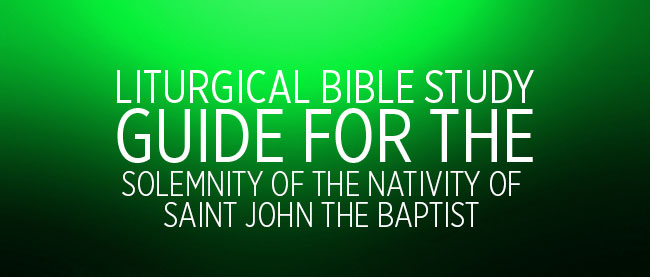Introduction
A cousin of Jesus, Saint John had the unique office of forerunner of the Messiah; an office which had been foretold in the Old Testament (Malachi 3:1). John began to fulfill this office in the desert of Judea, on the banks of the Jordan. Clothed in skins, reminiscent of Elijah, he announced to all men the obligation of washing away their sins with the tears of sincere penitence, and proclaimed the Messiah, who was about to make His appearance among them. He admonished all to charity and a reformation of their lives, and those who came to him in these dispositions he baptized in the river. The Jews practiced religious washings of the body as legal purifications, but no baptism before that of John had so great and mystical a significance. It chiefly represented the manner in which the souls of men must be cleansed from all sin to be made partakers of Christ’s spiritual kingdom, and it was an emblem of the interior effects of sincere repentance; a type of that sacrament of baptism which was to come with our Lord. So noteworthy was this rite in Saint John’s ministrations that it earned for him even in his own lifetime the signifying name of “the baptizer.”
As we read the story of John’s conception and birth, the motifs of the child of aged parents, the announcement of the birth by an angel, and the divinely chosen name echo the narratives of Abraham, Isaac, Samson and Samuel.
1st Reading – Isaiah 49:1-6
Our first reading for today is the beginning of the second suffering servant song of Isaiah. Although these songs are usually applied to the Messiah, here the depiction could easily also be that of the one who is to announce the coming of the Messiah.
2nd Reading – Acts 13:22-26
Our second reading for today comes from Saint Paul’s discourse in the synagogue of Antioch in Pisidia. Saint Paul is providing a survey of history which shows that Jesus is from the kingly line of David and is therefore the fulfillment of all the Jewish prophesies. In looking at the historical perspective, there are three distinct periods which can be described in the history of the world: (1) the period of Israel, which extends from creation
to Saint John the Baptist; (2) the period of Jesus, which encompasses the three years of His public ministry (from John the Baptist to the ascension); and (3) the period of the Church, from the ascension until the end of time.
Gospel – Luke 1:57-66, 80
This is Saint Luke’s account of the birth of John the Baptist; an account which closely parallels his account of the birth of Jesus (Luke 2:1-20).


